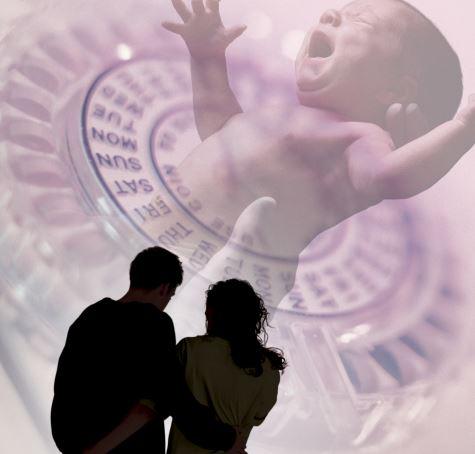
Credit: Wikimedia Commons
Every once in a while, a story about male birth control comes out, and everyone starts talking about the many ways it will change everything—including but not limited to the very way we fundamentally view the female body, sexuality and reproductive health.
The latest product garnering aforementioned interest is Vasalgel, a non-hormonal, sperm-blocking medical technology that, having been proven successful on horny baboons, will soon move into human testing.
An excellent piece in The Daily Beast examines how this could upend the pharmaceutical industry, challenge the Religious Right and otherwise start a world-rocking revolution.
But all of this will only come to fruition if one critical question is addressed: Even if male birth control is readily available . . . will men use it?
To Birth Control Or Not To Birth Control . . .
This question isn't meant to suggest that men are selfish, irresponsible, reproductive-health-skirting jerks. But the burden of responsibility for fertility has been on women for so long—the pill was first approved for contraceptive use in 1960, more than 50 years ago—that male birth control represents a powerful paradigm shift that anyone would have a hard time adjusting to.
The most reputable survey on this topic, conducted by the Kaiser Family Foundation, revealed that 66% of men would be willing to take male birth control pills. Meanwhile, 43% were on board with taking the Depo-Provera shot, and just 36% were open to getting injected with the Norplant implant.
But while these numbers are somewhat promising—at least when it comes to the pill—they're not without a few concerning caveats. The same survey found that both men (80%) and women (89%) agreed that "women feel more responsibility for the children they bear than men." And more than half of the men said they "did not" know a lot about different contraception methods currently available, with one in five admitting he knew "little or nothing" about contraception.
How quickly can men be expected to adapt to something that remains, in many ways, so completely foreign to them?
Reason For Hope?
Still, there's reason to believe that adoption on a mass scale is possible. The Kaiser study, while still the most reputable, is pretty old at this point. It came out in 1997, and a whole lot has changed since then—particularly when it comes to gender balance in domestic affairs like raising children. To take but one example of epic change, in 1965, fathers with children under the age of 18 living in their household spent an average of just 2.6 hours per week caring for those children; by 2000, that number had jumped to 6.5 hours.
As men become more involved in caring for their children, it stands to reason that they'll become more open to taking an active role in managing fertility as well. With the gender divide increasingly narrowing, there's a greater chance that men will be open to taking the reins on what has traditionally been conceived of as the "woman's job."
Ultimately, though, the thing that could really enable mass adoption of this male-centric birth control option is the same thing that motivates women to religiously, even fanatically, commit to a daily pill-popping regimen: sheer, unadulterated fear. While not scientific, a perusal of forums asking men to comment on whether or not they want to take birth control yields answers like this:
Hell yeah that pill would prevent the worst STD possible..... Pregnancy!
And:
Sure would. Stops me getting paranoid that some crazy bitch is trying to get me to knock her up. It's happened before.
Setting aside the rather blatant misogyny of the latter comment, it seems no one wants to contend with the consequences—emotional, financial and otherwise—of an unwanted pregnancy. On that point, at least, men and women are very much on the same page.






